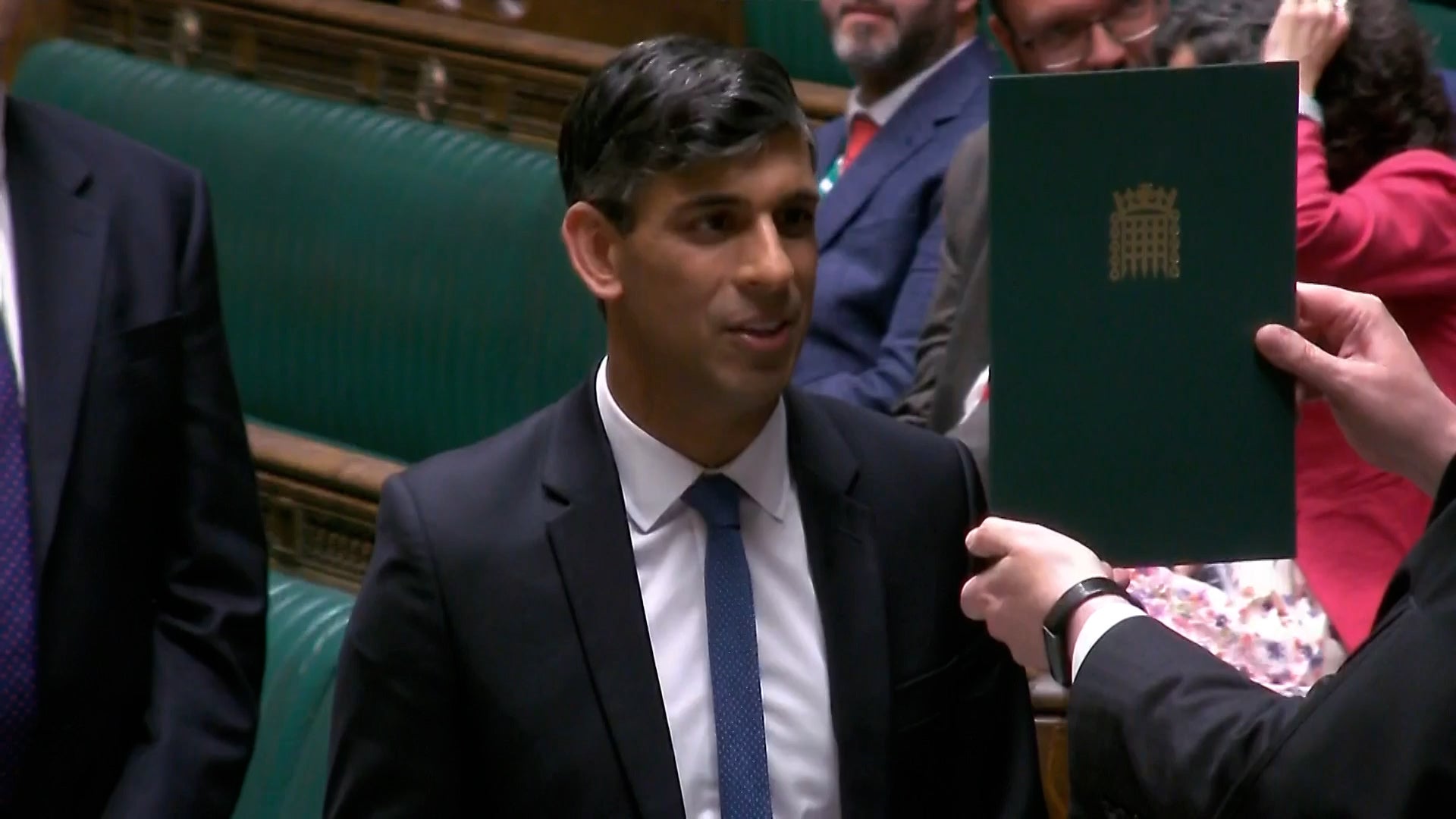Rishi Sunak was gracious in defeat – the Conservatives should keep him on as leader
As prime minister, he was the right man at the wrong moment – but Sunak’s first outing in opposition proved that he is now head and shoulders above all Tory leadership contenders, says John Rentoul


For those of us in the press gallery, it was a disorienting experience, as if our heads were still spinning from the sleep deprivation of last week. For one thing, the colours were all wrong. It took a few seconds to realise why: Labour MPs, all reds and bright tones, were on the Wrong Side of the Commons chamber.
Where the Labour Party used to be was a dull, navy-grey block of suits: the much-reduced Conservative Party occupying the opposition benches nearer the speaker. There were more colours further down the opposition side: yellows signifying Liberal Democrats instead of Scottish Nationalists, bright greens and a patch of brown where Nigel Farage was sitting, in the middle at the back.
Then, after the pantomime of dragging a patently unreluctant Lindsay Hoyle to the speaker’s chair, he called on “the prime minister, Keir Starmer”, to speak. For a moment, it felt as if he had got his names mixed up – but as the Labour leader stood, we were reminded that he was indeed now running the country.
Starmer has already relaxed into the role. The nervous, strangulated caution of opposition has dropped away. He was gracious, crossing the floor before the session started to speak briefly to Rishi Sunak. He paid tribute to the speaker, as did the leaders of all the parties in parliament – warm tributes that were only slightly undermined by Colum Eastwood, leader of the Northern Irish Social and Democratic Labour Party, who warned new MPs not to fall out with the speaker because he is “the boss of everything in this place”.
Starmer even managed the necessary hypocrisy of paying tribute to the new Mother of the House, Diane Abbott, now the longest-serving female MP, and welcoming her “back to her place”, only a few weeks after trying to make sure that she wouldn’t be there.
But the really striking speech was made by Sunak, the leader of the opposition, the first prime minister to have assumed that role since John Major.
He congratulated the prime minister on his election victory and wished him and his family well. He said: “In politics, we can argue vigorously, as the prime minister and I did over the past six weeks, and still respect each other.”
How very different in tone from two of his predecessors, who left office, admittedly not as a result of general elections, but with bad grace and while insisting that they had been right all along.
Sunak accepted that he had lost under the rules and did not try to blame the voting system. Instead, he praised it. “One of the great aspects of our system is that no matter how high you rise, you still have that constituency to keep you grounded.” While saying to Conservatives who had lost their seats that he was sorry, and that their “wisdom and experience will be missed”, he said: “Our democracy is powerful and as we have witnessed it can be definitive.”
Despite that “definitive” result, which has more than halved the numbers of Tory MPs, and more than doubled the number of Labour ones, he promised that “this House, true to its traditions, will hold the executive to account”.
It was a generous, civilised and respectful speech. As one of my friends commented: “He is head and shoulders above the other leadership contenders.” Perhaps he should run.
It sounded as if he had learned from, and regretted, some of the sharper exchanges during the election campaign, when he had never quite said but suggested that his opponent would be a danger to national security.
In many ways, Sunak was the right leader at the wrong moment. He was driven by desperation to try increasingly wild and incoherent things – stop the boats; national service; vote against a supermajority – but he is an essentially decent politician who believes deeply in British democracy in all its decisive clarity.






Join our commenting forum
Join thought-provoking conversations, follow other Independent readers and see their replies
Comments